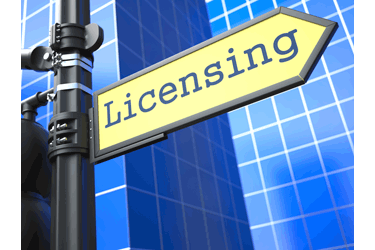
2.13.21 – Daily Leader
The first reform is the passage of a universal recognition of occupational licenses. House Bill 1263 will make it easier for people to move to Mississippi.
The Mississippi House of Representatives recently passed several reform bills, which will help Mississippians by reducing occupational licensing barriers and expanding access to healthcare.
The first reform is the passage of a universal recognition of occupational licenses. House Bill 1263 will make it easier for people to move to Mississippi. Unlike most other southern states which have seen their populations boom in recent years, Mississippi is losing population. So it makes sense to remove needless restrictions that make moving more difficult. [Ed. — Rep. Becky Currie of Brookhaven is one of HB1263’s co-sponsors].
What universal recognition does is make professional licenses more portable between states. Currently, a licensed professional moving to Mississippi must go through an application process, pay fees, take exams, and sometimes undergo training again. This is a substantial barrier to moving to a new state.
Arizona became the first of a handful of states to pass universal recognition in 2019. In the first year, over 1,000 professionals were able to take advantage of the new, streamlined process and move to Arizona to work. Licensing boards even supported how much easier the process became.
Mississippi has the opportunity to put out the welcome sign for licensed professionals. Removing this barrier will make it easier for people to move to Mississippi. But it will also benefit Mississippians. Professionals still must satisfy licensing requirements. What’s changing is that licensing boards trust other states, as we do for drivers’ licenses.
While removing the barriers to people moving to Mississippi is important, it doesn’t directly help residents of the state enter professions. Too often, licensing requirements pose a burden, keeping aspiring professionals from entering a field. Since 1993, the number of licensed professions in the state that do not require a college degree increased from 17 to 66. Many without a college degree are losing the opportunity to join the middle class.
That’s where House Bill 1315 comes in. This bill eliminates the licensing requirement for a handful of professions like art therapists, auctioneers, interior designers, and wigologists.
Occupational licensing exists to ensure quality and protect consumers. It also helps markets function by giving consumers the confidence to trust a service provider. Just like you want to be confident that the used car you’re looking at won’t break down and leave you stranded, you want to know that your physician has been to medical school and won’t harm you.
Yet, over the past few decades, occupational licensing has expanded from these professions that carry a risk of injury or even death, and into professions that do not impact consumer safety.
In these cases, licensing laws can serve as a barrier to entry, rather than protecting consumers. The training and education process makes it more difficult for people to enter the field. For consumers, this means higher prices and fewer professionals to choose from.
Finally, the House passed House Bill 1303, which would improve healthcare access. Like the U.S. as a whole, Mississippi is facing a shortage of physicians. Over 90% of the counties in the state face a shortage of primary care. This means that patients are forced to wait longer and travel further to receive care. Low-income urban centers and rural areas alike suffer.
This bill would expand the scope of practice for nurse practitioners, allowing them to provide more care. Currently, NPs can practice on their own, but they have to sign a collaborative agreement with a physician. The NP pays thousands of dollars each year, and the physician reviews 10 percent of their cases each month. The purpose of this law is to protect the patient. But in practice this oversight is limited and after the fact. But it does make it more expensive for NPs to practice on their own.
HB 1303 would end the requirement for these agreements for experienced NPs. Mississippi would join 22 other states, Washington DC, and the Veteran’s Administration in letting NPs practice to their full training and ability.
NPs get master’s degrees and undergo extensive training. This reform would allow them to use that training to help patients receive high-quality care.
Mississippi is a great place to live and work. However, some well-intentioned laws and regulations make things more difficult than it needs to be. Luckily, the state legislature is taking steps to reform these areas. By breaking down barriers to people moving into the state, entering certain professions with low risk of harm, and expanding NP scope of practice to meet healthcare shortages, the House has taken concrete steps to improve Mississippi and make 2021 a much better year.
Conor Norris is a Contributing Fellow with Empower Mississippi and a research analyst at the Knee Center for the Study of Occupational Regulation.
